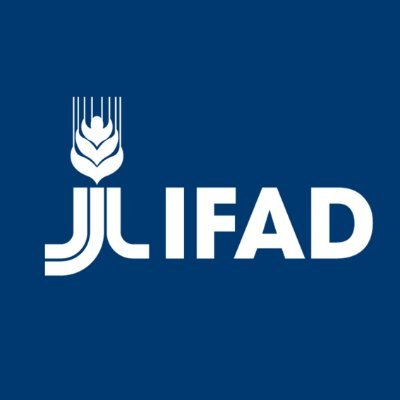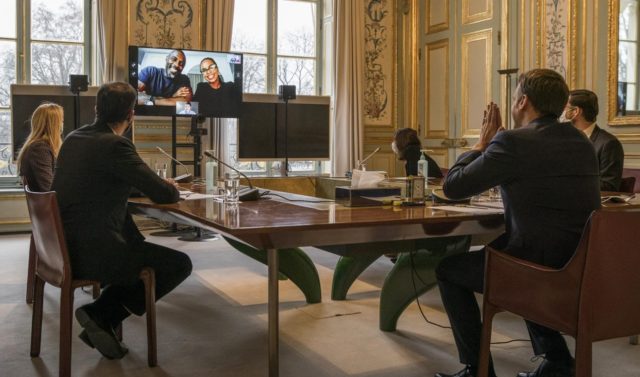Rome, 14 January 2021 – In a move to sustainably address rising hunger and poverty, exacerbated by COVID-19, climate change and biodiversity loss, French President Emmanuel Macron called on global leaders to step up their commitments in support of long-term agricultural development.

“Climate change, biodiversity and food are all correlated. Agriculture is key,” said President Macron, who announced a series of commitments during the One Planet Summit, including a 50 percent increase in funds to the International Fund for Agricultural Development (IFAD) for its work in 2022-2024. “I am convinced our partners will follow in this ambitious dynamic.”
Earlier in the day, President Macron met with the IFAD’s UN Goodwill Ambassadors Idris Elba, actor, filmmaker and humanitarian, and Sabrina Dhowre Elba, actress, model and activist, who advocated for increased investments to rural populations, biodiversity and the fight against climate change.

“We are delighted that President Macron has joined many countries, including those from Africa, who have increased their pledges to IFAD, and we hope other leaders and countries will follow their lead,” said Idris and Sabrina Dhowre Elba following the announcement. “At a time when every country is experiencing hardship from the pandemic, we need more than ever the political vision to tackle our interlinked climate, health and economic emergencies. Investing in sustainable agriculture and rural areas not only creates economic opportunities for a better and more equal future, but can also help safeguard our planet.“
“We are extremely grateful to France for joining many other countries in substantially stepping up their commitments,” said Gilbert F. Houngbo, President of IFAD. “This investment will help sustainably free millions of the world’s most vulnerable people from the cycle of hunger and poverty, which is exacerbated by increasingly unpredictable weather. Less hunger, less poverty and a strengthened resilience to climate change means a more prosperous and stable world for all.”
Three out of four of the world’s poorest people live in rural areas. A majority of them work in agriculture on small farms. While they produce 50 percent of the world’s food calories on only 30 percent of global agricultural land, many of them live in poverty and cannot feed their families. Hunger and poverty are on the rise due to conflict, climate change and the COVID-19 pandemic.
IFAD is one of the world’s largest multilateral financiers of agriculture and rural development, active in remote, rural areas in almost 100 countries. For over 40 years, its work has shown that investing in rural areas promotes prosperity, food security and resilience to weather changes, natural disasters, price hikes and other shocks like the COVID-19 pandemic that can later lead to humanitarian crises. Research also shows that economic growth in agriculture is two to three times more effective at reducing poverty than growth in other sectors.
IFAD has called on its Member States to significantly increase their contributions in support of its Twelfth Replenishment to deliver an overall programme of work of at least US$11 billion from 2022 to 2024, including through a new private sector financing programme and an expansion of its pioneering climate change adaptation programme (ASAP+). This would help approximately 140 million rural people increase their production and raise their incomes through better market access, contributing to creating jobs and improving food security and nutrition for the world’s most vulnerable people.
France joins 25 other countries who have already pledged their contributions to IFAD’s Replenishment including increases from countries such as Burkina Faso, Côte d’Ivoire, Finland, The Gambia, Greece, Luxembourg, Mali, São Tomé and Príncipe, Sierra Leone, Sweden and Uganda. Significant pledges have also been made by the Netherlands and Japan. Many other countries have confirmed their intention to announce increased contributions at the main pledging session in February.
IFAD’s Twelfth Replenishment is a year-long consultative process during which the Fund’s Member States come together to agree strategic directions and mobilize funds for IFAD to provide as concessional loans and grants to developing countries.
